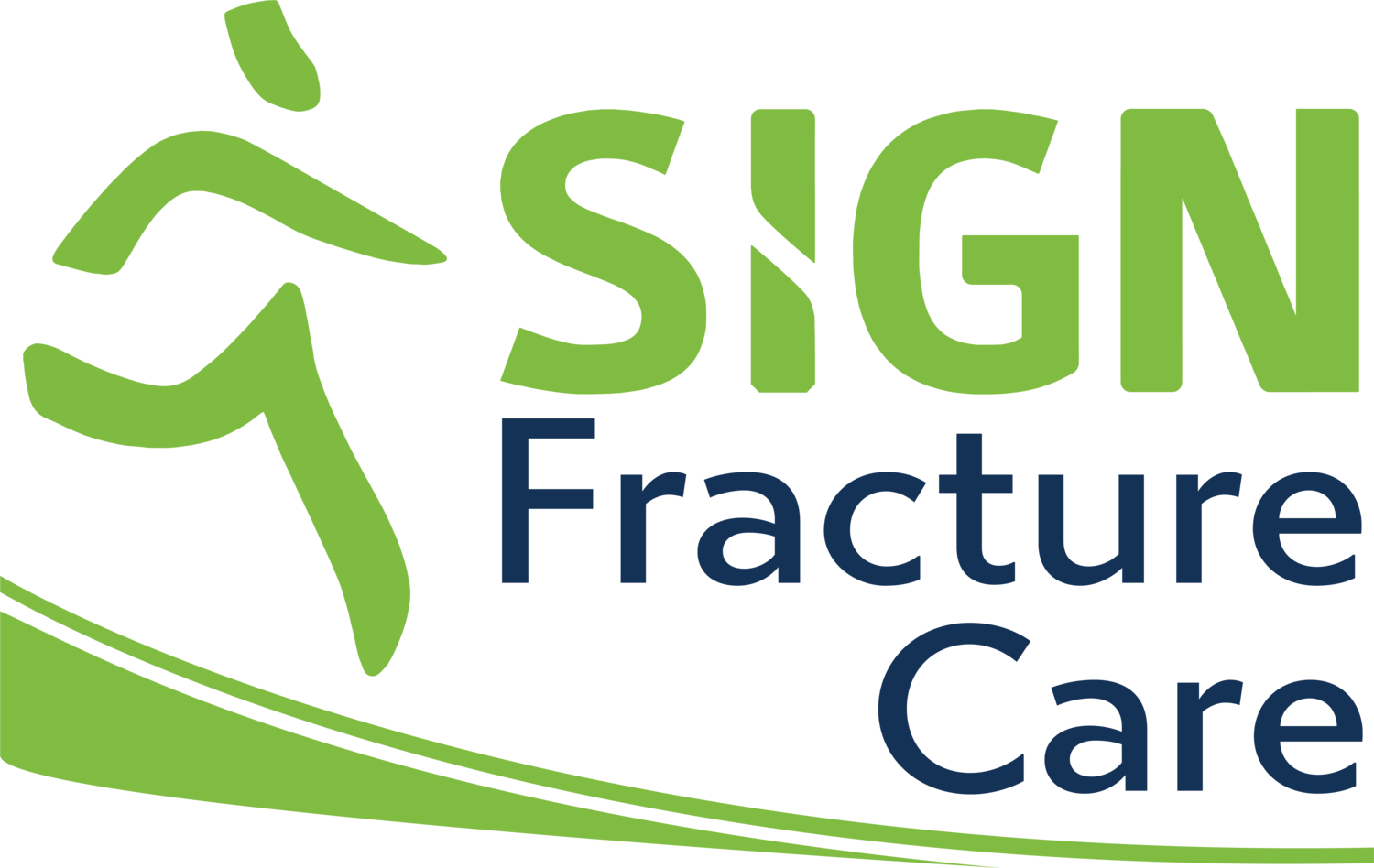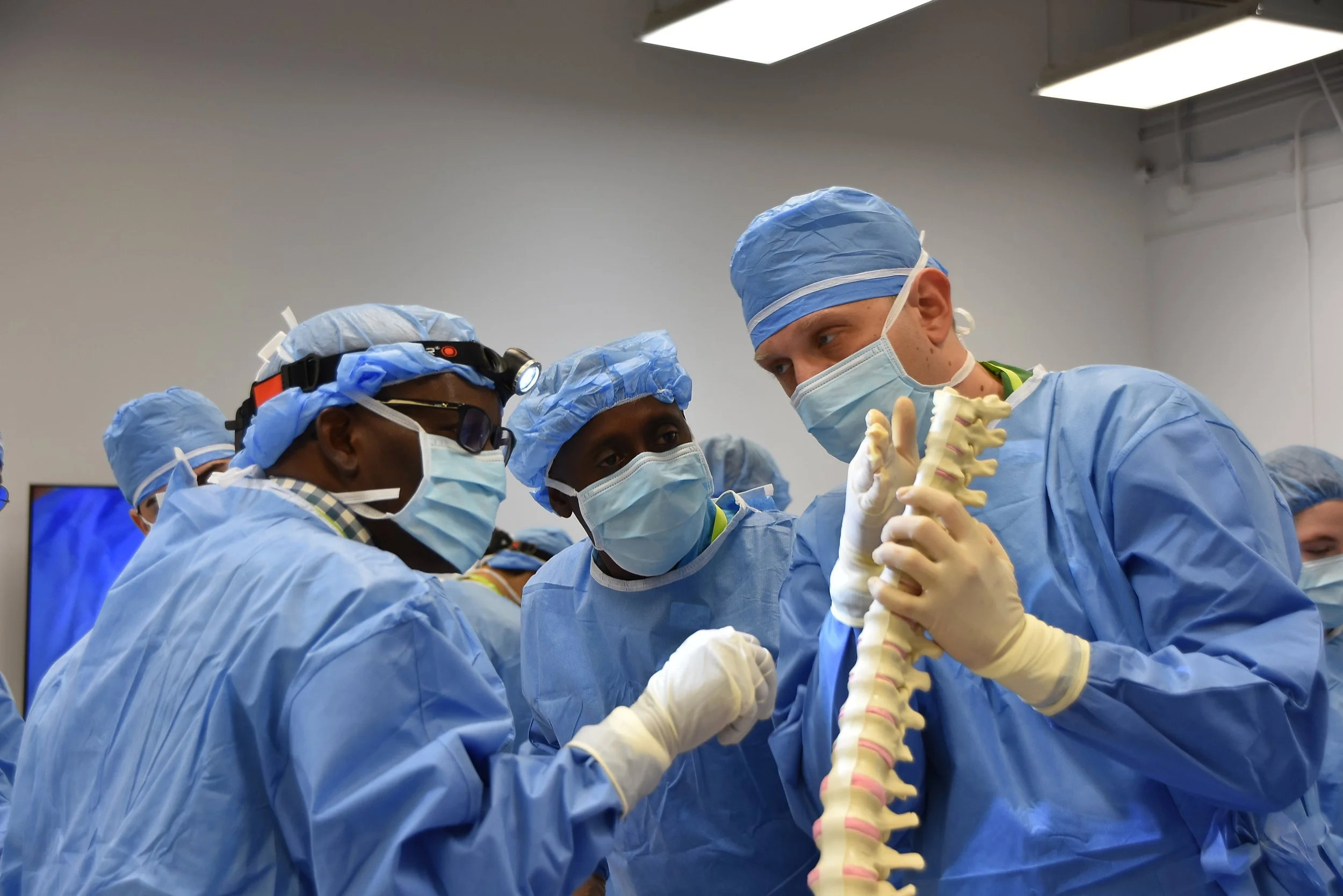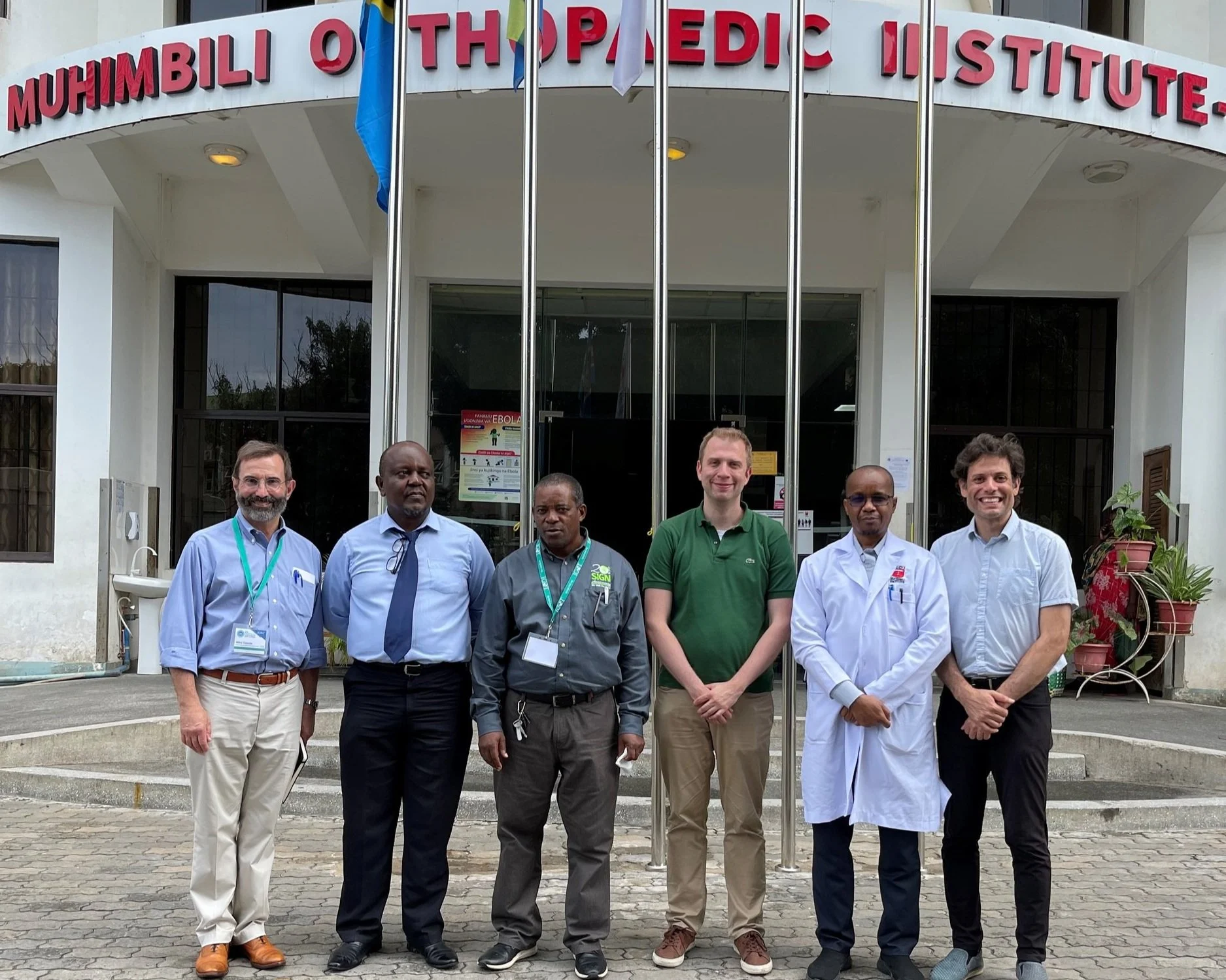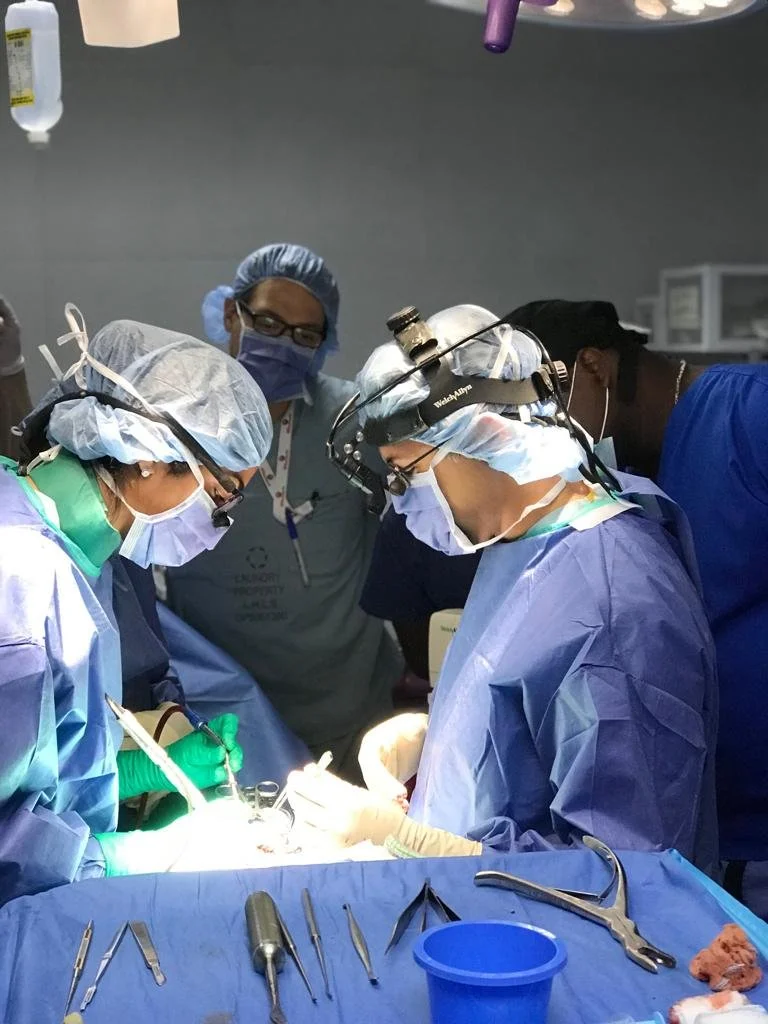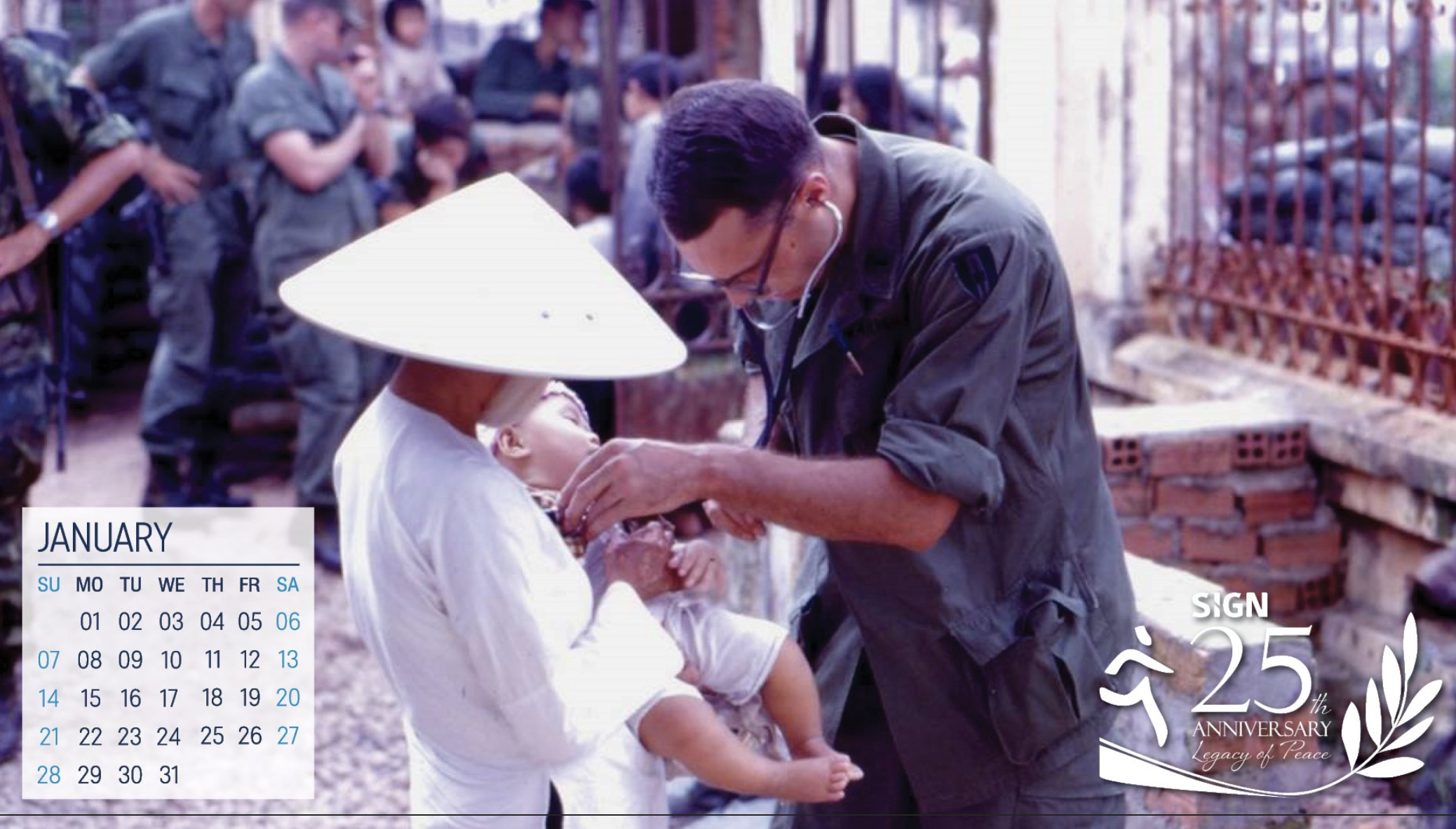SIGN Spine
As 2024 wraps up, we want to thank you for celebrating 25 years of SIGN History with us. As we look ahead, we are excited to help more people in exciting ways.
With the help of dedicated spine surgeons from the United States and Canada, SIGN is expanding upon its mission to treat the injured poor. This year, we launched two pilot projects in Kenya and Tanzania to provide training for surgeons, equip them with appropriate implants, and enable them to provide healing care for patients with difficult spine fractures.
Education
Dr. David Gendelberg instructs surgeons using Sawbones during the 2024 SIGN Conference.
To perform spinal surgery requires extensive training, which is often out of reach for surgeons in low- and middle-income countries (LMIC) due to the length of time and expenses. One goal of SIGN Spine is to identify surgeons with an interest in spine surgery who work at centers with the capacity for safe spinal care. These surgeons are then provided spine fellowship training at an academic hospital in Canada.
(Left to right) Drs. Mike Coscia, Anthony Assey, Billy Haonga, David Gendelberg, Laurence Lemery, and Ashraf El Naga at Muhimbili Orthopaedic Institute.
To lay the groundwork for future projects, SIGN offers an invite-only Spine Day as part of the SIGN International Orthopaedic Conference. Throughout the day, surgeons attend lectures and experience hands-on training with Sawbones and cadaveric specimens. This helps in identifying which surgeons display the necessary interest and ability to perform spine surgery.
Dr. Geofrey Ngetich, a native of Eldoret, Kenya, is the first SIGN sponsored surgeon to complete a one-year fellowship at Hamilton General Hospital and McMaster University in Canada. This summer, he returned home to spearhead a spine care center at Moi Teaching and Referral Hospital (MTRH). Dr. Ngetich is actively performing surgeries alongside neurosurgeon Dr. Sydney Kirui Kiphorir Rono.
To measure the impact of SIGN Spine Programs, surgeons are documenting procedures and outcomes in the REDCap database. Thanks to our partners at UCSF, the REDCap database is customized to fit the needs of SIGN Spine surgeons.
Projects
Empowering spine surgeons in LMIC will help thousands of patients and improve local healthcare systems.
MTRH constructed a “spine only” operating theatre, thanks to contributions from generous donors and the Indiana University Foundation. Multi-year grants from the OrthoIndy Foundation and Medtronic are helping to supply MTRH with instruments, implants, and other surgical equipment. MTRH seeks to be a comprehensive spinal care facility, treating cervical, thoracic, and lumbar cases.
At Muhimbili Orthopaedic Institue (MOI) in Tanzania, a slightly different approach is underway. In partnership with Weill Cornell Global Neurosurgery, MOI currently has both the infrastructure and qualified surgeons needed for spine fracture care. We are therefore focused on providing a reliable source of implants and studying cases to determine outcomes, safety, and overall cost effectiveness. The overall aim for MOI is to expand upon their existing thoraco-lumbar program and develop new approaches that can be used at future sites.
Growth and Expansion
We are pleased to announce that two more SIGN Surgeons have been accepted into spine fellowship programs. Drs. Workineh Mengesha and Tewadros Asegie, both from Ethiopia, are set to begin their fellowships in 2025. The two fellows have also been enrolled in the AO Global Spine Diploma Program, which will now become a standard part of the SIGN Spine Fellowship. Additionally, five more SIGN Spine programs are set to activate in the next year. Three of these programs are located in Ethiopia, with the remaining two in Malawi.
What is the memory about SIGN that first comes to your mind? Perhaps it’s a patient, meeting with a surgeon, or something else in your life that sparked a connection with fracture care.
We’d love to hear from you, and potentially share your story. Please comment below or email us at info@signfracturecare.org
In honor of SIGN's 25 years of healing, would you consider making a monthly gift of $25 or more?
Check the "Monthly" box and type in your gift amount on the donation form.
Discover more!
Throughout the year, remember your support of SIGN with background images for your computer or phone.
Discover events that shaped SIGN in a historical timeline.
